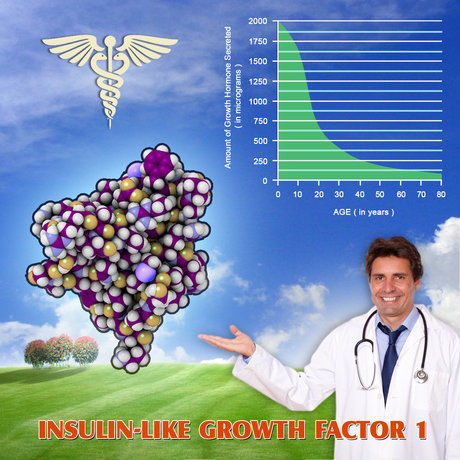Introduction to Hair Loss in Children
Hair loss, a condition often associated with aging, can also affect children, presenting a unique set of challenges and concerns. While the prevalence of hair loss in young American males is not as widely studied as in adults, it remains a significant issue that warrants greater attention and research. This article aims to shed light on the causes, impacts, and potential treatments of hair loss in children, emphasizing the need for increased awareness and medical investigation.
Causes of Hair Loss in Young Males
Hair loss in children can stem from various causes, ranging from genetic predispositions to environmental factors. One of the primary causes is alopecia areata, an autoimmune disorder where the body's immune system attacks hair follicles, leading to patchy hair loss. Tinea capitis, a fungal infection of the scalp, is another common cause, particularly in young boys. Additionally, telogen effluvium, a condition triggered by stress or illness, can result in temporary hair loss. Nutritional deficiencies, such as a lack of iron or zinc, can also contribute to hair thinning and loss in children.
Impact on Young Males
The psychological impact of hair loss on young American males should not be underestimated. Children experiencing hair loss may face challenges with self-esteem and social interactions, which can affect their overall well-being and development. In a society where appearance plays a significant role, young males with hair loss may feel isolated or different from their peers, leading to emotional distress and potential long-term mental health issues.
Current Treatment Options
Treatment for hair loss in children varies depending on the underlying cause. For alopecia areata, topical corticosteroids or immunotherapy may be prescribed to help stimulate hair regrowth. Antifungal medications are typically used to treat tinea capitis, while addressing nutritional deficiencies involves dietary adjustments or supplements. In cases of telogen effluvium, the focus is often on managing the underlying stress or illness. However, the effectiveness of these treatments can vary, and more research is needed to develop targeted therapies for pediatric hair loss.
The Need for Increased Research
Despite the significant impact of hair loss on young American males, research in this area remains limited. Increased funding and attention to pediatric hair loss could lead to better understanding of its causes and more effective treatments. Collaborative efforts between dermatologists, pediatricians, and mental health professionals are essential to address the multifaceted nature of this condition. By prioritizing research, we can develop evidence-based guidelines and support systems for affected children and their families.
Raising Awareness and Support
Raising awareness about hair loss in children is crucial for early detection and intervention. Parents, educators, and healthcare providers should be informed about the signs and symptoms of hair loss in young males, enabling them to seek appropriate medical advice promptly. Support groups and online communities can also play a vital role in providing emotional support and resources for families navigating this challenging experience.
Conclusion
Hair loss in young American males is an understudied medical issue that requires increased attention and research. By understanding the causes, impacts, and treatment options, we can better support affected children and their families. It is essential for the medical community and society as a whole to prioritize this issue, ensuring that young males with hair loss receive the care and support they need to thrive.
Contact Us For A Fast And Professional Response

- Unveiling the Silent Saboteur: The Connection Between Scalp Infections and Hair Loss in American Males [Last Updated On: February 18th, 2025] [Originally Added On: February 18th, 2025]
- Revolutionizing Confidence: A Comprehensive Guide to Medical Wigs for Hair Loss in American Males [Last Updated On: February 20th, 2025] [Originally Added On: February 20th, 2025]
- Chemotherapy-Induced Hair Loss in American Males: Understanding, Coping, and Regrowth Strategies [Last Updated On: March 1st, 2025] [Originally Added On: March 1st, 2025]
- Decrypting the Hidden Layers: Hair Loss as a Latent Medical Dilemma [Last Updated On: March 2nd, 2025] [Originally Added On: March 2nd, 2025]
- Exploring the Impact of Thyroid Disorders on Hair Health: Understanding the Connection, Clinical Symptoms, and Effective Management Strategies [Last Updated On: March 3rd, 2025] [Originally Added On: March 3rd, 2025]
- Advancements in Surgical Hair Loss Treatments for Men [Last Updated On: March 4th, 2025] [Originally Added On: March 4th, 2025]
- Comprehensive Guide to Understanding and Managing Hair Loss in American Men [Last Updated On: March 5th, 2025] [Originally Added On: March 5th, 2025]
- Understanding Pediatric Hair Loss: Causes, Impact, and Treatment Options [Last Updated On: March 6th, 2025] [Originally Added On: March 6th, 2025]
- The Efficacy of Over-the-Counter Hair Loss Treatments: Scientific Evidence and Safety Considerations [Last Updated On: March 7th, 2025] [Originally Added On: March 7th, 2025]
- Embracing Holistic Approaches for Hair Health: A Comprehensive Guide for American Males [Last Updated On: March 8th, 2025] [Originally Added On: March 8th, 2025]
- The Genetic Basis of Male Pattern Baldness: Insights, Treatments, and Prevention Strategies [Last Updated On: March 9th, 2025] [Originally Added On: March 9th, 2025]
- Understanding the Link Between Stress and Hair Loss in American Males: A Comprehensive Medical Insight [Last Updated On: March 12th, 2025] [Originally Added On: March 12th, 2025]
- Hormonal Insights into Male Hair Loss: Causes, Treatments, and Lifestyle Impact [Last Updated On: March 13th, 2025] [Originally Added On: March 13th, 2025]
- Understanding Hair Loss in American Men: Separating Myths from Medical Realities [Last Updated On: March 15th, 2025] [Originally Added On: March 15th, 2025]
- Allergies and Hair Loss: Exploring the Link for American Males [Last Updated On: March 16th, 2025] [Originally Added On: March 16th, 2025]
- Understanding Hair Loss: Causes, Types, and Advanced Treatments for American Males [Last Updated On: March 17th, 2025] [Originally Added On: March 17th, 2025]
- Male Hair Loss: Understanding Genetic, Hormonal, and Lifestyle Risk Factors [Last Updated On: March 18th, 2025] [Originally Added On: March 18th, 2025]
- Topical Treatments for Hair Loss: Efficacy, Application, and Emerging Options [Last Updated On: March 18th, 2025] [Originally Added On: March 18th, 2025]
- Hair Loss in American Men: Psychological Impacts and Holistic Coping Strategies [Last Updated On: March 19th, 2025] [Originally Added On: March 19th, 2025]
- Revolutionizing Hair Loss Treatment: Innovations and Hope for American Males [Last Updated On: March 20th, 2025] [Originally Added On: March 20th, 2025]
- Diabetes and Hair Loss in American Males: Understanding the Link and Managing Risks [Last Updated On: March 21st, 2025] [Originally Added On: March 21st, 2025]
- Monogenic Hair Loss: Genetic Insights and Management for American Males [Last Updated On: March 21st, 2025] [Originally Added On: March 21st, 2025]
- Antidepressants and Hair Loss in Men: Mechanisms, Identification, and Management Strategies [Last Updated On: March 21st, 2025] [Originally Added On: March 21st, 2025]
- Alopecia Universalis: Understanding, Managing, and Coping for American Males [Last Updated On: March 21st, 2025] [Originally Added On: March 21st, 2025]
- Hair Loss in American Males: A Potential Indicator of Heart Disease Risk [Last Updated On: March 22nd, 2025] [Originally Added On: March 22nd, 2025]
- Effective Hair Loss Treatments for American Men: Medications and Mechanisms [Last Updated On: March 22nd, 2025] [Originally Added On: March 22nd, 2025]
- Drug-Induced Hair Loss in American Males: Causes, Symptoms, and Management Strategies [Last Updated On: March 22nd, 2025] [Originally Added On: March 22nd, 2025]
- Innovative Hair Loss Solutions for American Males: From Stem Cells to 3D Printing [Last Updated On: March 22nd, 2025] [Originally Added On: March 22nd, 2025]
- Hair Follicle Miniaturization: Understanding and Managing Hair Loss in American Males [Last Updated On: March 23rd, 2025] [Originally Added On: March 23rd, 2025]
- Steroids and Hair Loss in American Men: Causes, Risks, and Management Strategies [Last Updated On: March 23rd, 2025] [Originally Added On: March 23rd, 2025]
- Autoimmune Disorders and Hair Loss in American Males: Mechanisms, Conditions, and Treatments [Last Updated On: March 23rd, 2025] [Originally Added On: March 23rd, 2025]
- Male Hair Loss: Causes, Prevention, and Treatment Options for American Men [Last Updated On: March 23rd, 2025] [Originally Added On: March 23rd, 2025]
- Anabolic Steroids and Hair Loss: Mechanisms, Prevalence, and Management in American Males [Last Updated On: March 23rd, 2025] [Originally Added On: March 23rd, 2025]
- Telogen Effluvium in American Men: Causes, Symptoms, and Management Strategies [Last Updated On: March 23rd, 2025] [Originally Added On: March 23rd, 2025]
- Understanding Hair Loss: Causes, Treatments, and Hope for American Men [Last Updated On: March 23rd, 2025] [Originally Added On: March 23rd, 2025]
- Aromatherapy for Hair Loss: Benefits, Evidence, and Considerations for American Males [Last Updated On: March 23rd, 2025] [Originally Added On: March 23rd, 2025]
- Medical Hair Loss in Men: Causes, Management, and Prevention Strategies [Last Updated On: March 23rd, 2025] [Originally Added On: March 23rd, 2025]
- Aging Males and Hair Loss: Causes, Impacts, and Management Strategies [Last Updated On: March 24th, 2025] [Originally Added On: March 24th, 2025]
- Anemia and Hair Loss in American Males: Causes, Diagnosis, and Management Strategies [Last Updated On: March 24th, 2025] [Originally Added On: March 24th, 2025]
- Guide to Hair Loss Surgery Techniques for American Males [Last Updated On: March 24th, 2025] [Originally Added On: March 24th, 2025]
- Hair Cloning: A Breakthrough in Hair Loss Treatment for American Males [Last Updated On: March 24th, 2025] [Originally Added On: March 24th, 2025]
- Innovative Strategies to Mitigate Chemotherapy-Induced Hair Loss in American Males [Last Updated On: March 25th, 2025] [Originally Added On: March 25th, 2025]
- Vitamin Deficiencies and Hair Loss in American Males: Causes and Solutions [Last Updated On: March 25th, 2025] [Originally Added On: March 25th, 2025]
- Hair Extensions and Permanent Hair Loss: Risks for American Males [Last Updated On: March 25th, 2025] [Originally Added On: March 25th, 2025]
- Post-COVID Hair Loss in American Males: Causes, Symptoms, and Management Strategies [Last Updated On: March 26th, 2025] [Originally Added On: March 26th, 2025]
- LLLT: A Non-Invasive Hair Loss Solution for American Men [Last Updated On: March 26th, 2025] [Originally Added On: March 26th, 2025]
- American Men Triumph Over Hair Loss: Success Stories and Effective Treatments [Last Updated On: March 27th, 2025] [Originally Added On: March 27th, 2025]
- AI Revolutionizes Male Pattern Baldness Diagnosis and Treatment [Last Updated On: March 27th, 2025] [Originally Added On: March 27th, 2025]
- Androgenetic Alopecia: Advances in Treatment and Understanding Mechanisms [Last Updated On: March 27th, 2025] [Originally Added On: March 27th, 2025]
- Advanced Diagnostic Technologies for Hair Loss in American Men: A Comprehensive Overview [Last Updated On: March 27th, 2025] [Originally Added On: March 27th, 2025]
- Thyroid Disorders and Hair Loss in American Males: Causes and Management [Last Updated On: March 27th, 2025] [Originally Added On: March 27th, 2025]
- Immune System Disorders and Hair Loss in American Males: Mechanisms, Symptoms, and Treatments [Last Updated On: March 27th, 2025] [Originally Added On: March 27th, 2025]
- Managing Hair Loss: Medical Insights and Societal Perceptions for American Men [Last Updated On: March 27th, 2025] [Originally Added On: March 27th, 2025]
- Shock Loss After Hair Transplant: Causes, Timeline, and Management for American Males [Last Updated On: March 27th, 2025] [Originally Added On: March 27th, 2025]
- Hair Dyes and Hair Loss in American Males: Investigating the Correlation [Last Updated On: March 27th, 2025] [Originally Added On: March 27th, 2025]
- Postpartum Hair Loss: Causes, Effects, and Support Strategies for New Mothers [Last Updated On: March 27th, 2025] [Originally Added On: March 27th, 2025]
- PCOS-Like Symptoms and Hair Loss in American Males: Hormonal Insights [Last Updated On: March 27th, 2025] [Originally Added On: March 27th, 2025]
- PRP Therapy: A Promising Solution for Hair Loss in American Men [Last Updated On: March 28th, 2025] [Originally Added On: March 28th, 2025]
- High Blood Pressure and Hair Loss: Understanding the Indirect Links in American Males [Last Updated On: March 29th, 2025] [Originally Added On: March 29th, 2025]
- Androgenetic Alopecia: Genetic Insights and Emerging Treatments for Male Pattern Baldness [Last Updated On: March 29th, 2025] [Originally Added On: March 29th, 2025]
- Scalp Psoriasis in American Males: Impacts, Hair Loss, and Management Strategies [Last Updated On: March 29th, 2025] [Originally Added On: March 29th, 2025]
- Trichotillomania in American Males: Understanding, Impact, and Treatment Options [Last Updated On: March 30th, 2025] [Originally Added On: March 30th, 2025]
- Rogaine: Benefits, Risks, and Realistic Expectations for Hair Loss Treatment [Last Updated On: March 30th, 2025] [Originally Added On: March 30th, 2025]
- Understanding and Treating Hair Loss in Men: A Guide for Physicians [Last Updated On: March 31st, 2025] [Originally Added On: March 31st, 2025]
- Male Menopause and Hair Loss: Understanding and Managing Thinning in American Men [Last Updated On: April 2nd, 2025] [Originally Added On: April 2nd, 2025]
- Stem Cell Therapy: A New Hope for Hair Loss in American Males [Last Updated On: April 4th, 2025] [Originally Added On: April 4th, 2025]
- Hair Loss in American Men: Psychological Impacts and Holistic Coping Strategies [Last Updated On: April 4th, 2025] [Originally Added On: April 4th, 2025]
- Efficacy of Hair Loss Shampoos for American Males: Ingredients and Benefits Analyzed [Last Updated On: April 5th, 2025] [Originally Added On: April 5th, 2025]
- Hair Loss in American Males: Psychological Impacts and Holistic Treatment Approaches [Last Updated On: April 6th, 2025] [Originally Added On: April 6th, 2025]
- Understanding CCCA: Causes, Symptoms, and Management for American Males [Last Updated On: April 7th, 2025] [Originally Added On: April 7th, 2025]
- Minoxidil: Effective Hair Loss Treatment for American Men [Last Updated On: April 7th, 2025] [Originally Added On: April 7th, 2025]
- Hair Breakage vs. Hair Loss: Key Differences and Solutions for American Males [Last Updated On: April 7th, 2025] [Originally Added On: April 7th, 2025]
- Managing Hair Loss After Bariatric Surgery in American Males: Causes and Solutions [Last Updated On: April 9th, 2025] [Originally Added On: April 9th, 2025]
- Smoking and Hair Loss: Mechanisms, Evidence, and Mitigation Strategies for American Males [Last Updated On: April 11th, 2025] [Originally Added On: April 11th, 2025]
- Lifestyle Strategies to Combat Hair Loss in American Males [Last Updated On: April 11th, 2025] [Originally Added On: April 11th, 2025]
- Weight Loss Diets and Hair Loss: Insights for American Males [Last Updated On: April 12th, 2025] [Originally Added On: April 12th, 2025]
- Gastrointestinal Health and Hair Loss: Mechanisms, Impacts, and Management Strategies [Last Updated On: April 12th, 2025] [Originally Added On: April 12th, 2025]
- Dietary Strategies for American Men to Combat Hair Loss and Promote Hair Health [Last Updated On: April 13th, 2025] [Originally Added On: April 13th, 2025]
- Protein Shakes and Hair Loss: Understanding the Link for American Males [Last Updated On: April 13th, 2025] [Originally Added On: April 13th, 2025]
- Iron Supplements and Hair Loss Reversal in American Men: A Comprehensive Guide [Last Updated On: April 14th, 2025] [Originally Added On: April 14th, 2025]

















